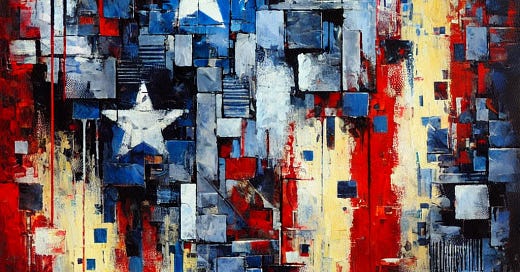Musk und Trump machen den Staat zur Waffe
Die Politikwissenschafter Steven Levitsky und Lucan Way in Foreign Affairs:
But even a modest tilting of the playing field could cripple American democracy.
Democracies require robust opposition, and robust oppositions must be able to draw on a large and replenishable pool of politicians, activists, lawyers, experts, donors, and journalists.
A weaponized state imperils such opposition. Although Trump’s critics won’t be jailed, exiled, or banned from politics, the heightened cost of public opposition will lead many of them to retreat to the political sidelines.
In the face of FBI investigations, tax audits, congressional hearings, lawsuits, online harassment, or the prospect of losing business opportunities, many people who would normally oppose the government may conclude that it simply is not worth the risk or effort.
This process of self-sidelining may not attract much public attention, but it can be highly consequential.
Facing looming investigations, promising politicians—Republicans and Democrats alike—leave public life.
CEOs seeking government contracts, tariff waivers, or favorable antitrust rulings stop contributing to Democratic candidates, funding civil rights or democracy initiatives, and investing in independent media.
News outlets whose owners worry about lawsuits or government harassment rein in their investigative teams and their most aggressive reporters.
Editors engage in self-censorship, softening headlines and opting not to run stories critical of the government.
And university leaders fearing government investigations, funding cuts, or punitive endowment taxes crack down on campus protest, remove or demote outspoken professors, and remain silent in the face of growing authoritarianism.
Weaponized states create a difficult collective action problem for establishment elites who, in theory, would prefer democracy to competitive authoritarianism.
The politicians, CEOs, media owners, and university presidents who modify their behavior in the face of authoritarian threats are acting rationally, doing what they deem best for their organizations by protecting shareholders or avoiding debilitating lawsuits, tariffs, or taxes.
But such acts of self-preservation have a collective cost. As individual actors retreat to the sidelines or censor themselves, societal opposition weakens.
The media environment grows less critical.
And pressure on the authoritarian government diminishes.
The depletion of societal opposition may be worse than it appears.
We can observe when key players sideline themselves—when politicians retire, university presidents resign, or media outlets change their programming and personnel.
But it is harder to see the opposition that might have materialized in a less threatening environment but never did—the young lawyers who decide not to run for office; the aspiring young writers who decide not to become journalists; the potential whistleblowers who decide not to speak out; the countless citizens who decide not to join a protest or volunteer for a campaign.
America is on the cusp of competitive authoritarianism. The Trump administration has already begun to weaponize state institutions and deploy them against opponents.
But the opposition can win only if it stays in the game.
Opposition under competitive authoritarianism can be grueling.
Worn down by harassment and threats, many of Trump’s critics will be tempted to retreat to the sidelines.
Such a retreat would be perilous. When fear, exhaustion, or resignation crowds out citizens’ commitment to democracy, emergent authoritarianism begins to take root.
Wir sehen diese Entwicklung bereits überall:
Elon Musk hat sich Twitter gekauft, um der Bully der Nation zu sein
Kaum ein Konservativer oder Republikaner traut sich Trump zu kritisieren
Es entwickelt sich in den USA derzeit alles in eine sehr bedenkliche Richtung.




